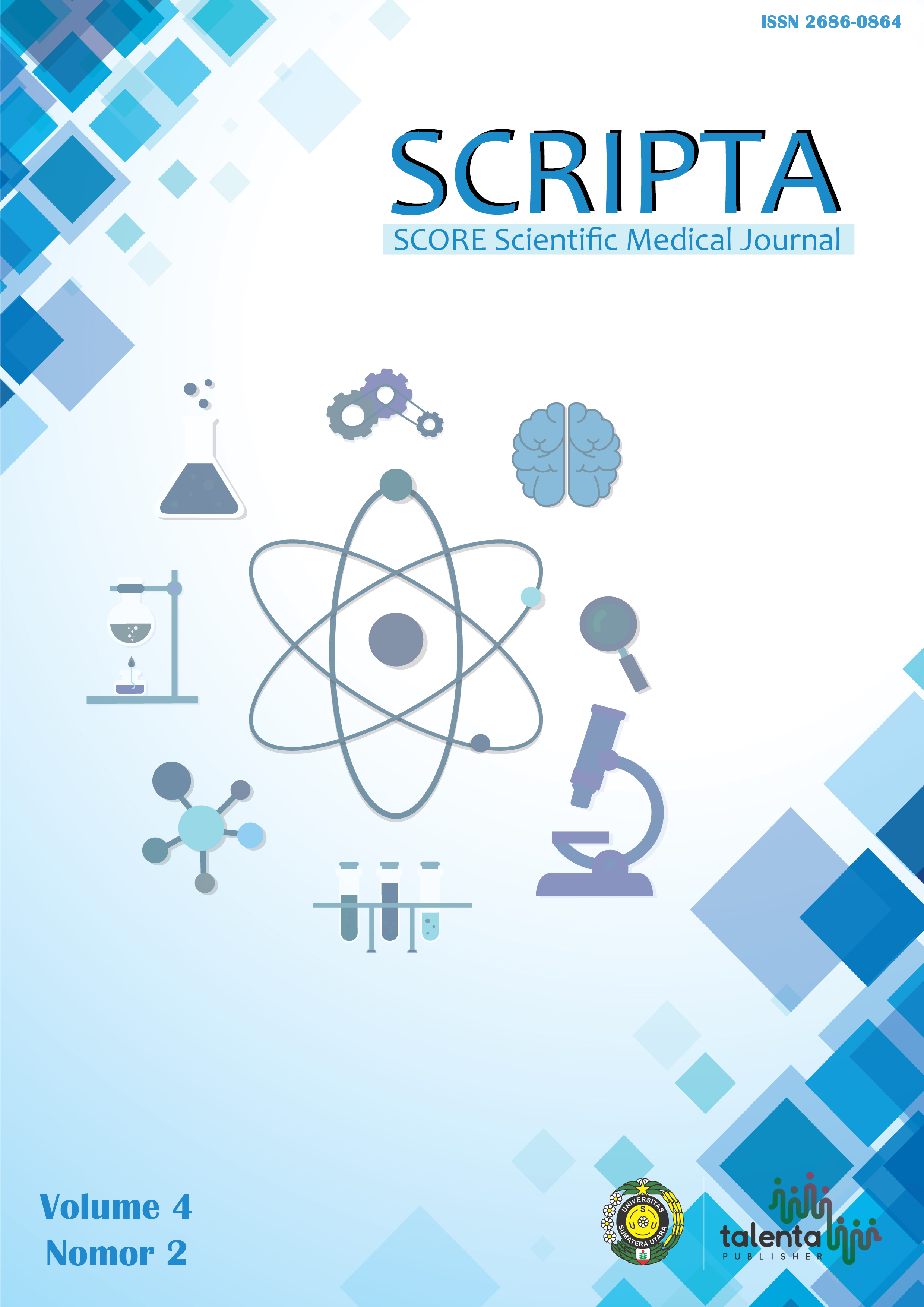Potency of Carica papaya Leaf Extract as Thrombocytopenia Therapy for Dengue Hemorrhagic Fever: A Systematic Review of Randomized Control Trials
DOI:
https://doi.org/10.32734/scripta.v4i2.9541Keywords:
Dengue Fever, Thrombocytopenia, Carica papaya, Demam Dengue, TrombositopeniaAbstract
Background: Dengue fever is a common disease in tropical countries. According to the data from the Indonesia Ministry of Health, there were 71.633 Dengue Haemorrhagic Fever (DHF) cases reported in Indonesia, with approximately 459 people dying from the disease. Thrombocytopenia is the most common clinical feature of DHF and often causes serious complications if not treatedproperly. Several studies have analyzed the potency of Carica papaya leaf which has been proven asan effective therapy for thrombocytopenia. Objectives: This systematic review aims to discover the potency of Carica papaya leaf extract as a therapy for thrombocytopenia. Method: Literature was searched by using keywords in accordance with the topic, then filtered according to the inclusion criteria that had been determined according to the PRISMA rules. Publication bias in this reviewwas conducted subjectively using the Revman 5.4 software. Results: From 138 studies, it wasfound that screening was carried out based on inclusion criteria, including a randomized controlled trial study in humans with a population of dengue fever patients and received the intervention of papaya leaf extract so that 6 studies were included in the inclusion study, which was then carried out by qualitative synthesis from the study. Based on the results of the qualitative analysis, it wasfound that there was a faster and more significant improvement in the platelet count between the intervention group compared to the control group in the 6 studies. Conclusion: Carica papaya leaf extract has potential as a thrombocytopenia therapy in dengue fever patients.
Downloads
Downloads
Published
How to Cite
Issue
Section
License
Copyright (c) 2023 Muhammad Farid Firmansyah Sabir, William Suciangto, Muhammad Zaki Rahmani, Anfauziyah Eka Lestari, Risna Halim Mubin

This work is licensed under a Creative Commons Attribution-ShareAlike 4.0 International License.
Authors who publish with SCRIPTA SCORE Scientific Medical Journal agree to the following terms:
- Authors retain copyright and grant SCRIPTA SCORE Scientific Medical Journal right of first publication with the work simultaneously licensed under a Creative Commons Attribution-NonCommercial License that allows others to remix, adapt, build upon the work non-commercially with an acknowledgment of the work’s authorship and initial publication in SCRIPTA SCORE Scientific Medical Journal.
- Authors are permitted to copy and redistribute the journal's published version of the work non-commercially (e.g., post it to an institutional repository or publish it in a book), with an acknowledgment of its initial publication in SCRIPTA SCORE Scientific Medical Journal.














